The Central Epidemic Command Center (CECC) yesterday listed dozens of locations in 10 cities and counties visited by 24 sailors confirmed to have been infected with COVID-19.
It also announced two new imported cases, both women in their 20s who studied abroad and were tested at an airport after reporting symptoms to quarantine officers upon arriving in Taiwan.
Case No. 421 studied in Canada, developed a cough with phlegm on Monday last week and returned to Taiwan on Sunday, Minister of Health and Welfare Chen Shih-chung (陳時中), who heads the center, told the center’s daily news conference.
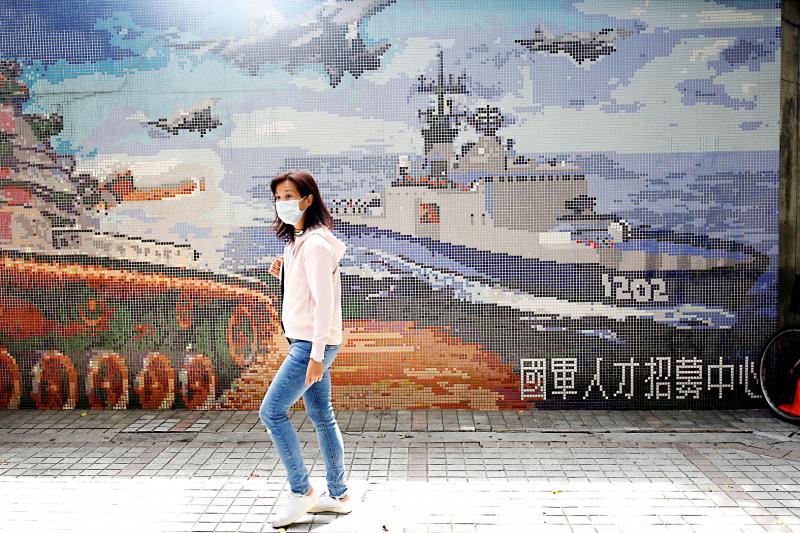
Photo: Ann Wang, Reuters
Case No. 422 studied in the US, visited Spain from Jan. 14 to March 15, developed difficulty breathing, and throat and abdominal pain on March 8, sought treatment after returning to the US, and returned to Taiwan on Saturday, he said.
The new cases brought the nation’s total to 422, including 203 people who have been removed from isolation after treatment, Chen said.
The CECC also followed up on a cluster of 24 cases confirmed in the crew of the navy supply ship Panshih (磐石).
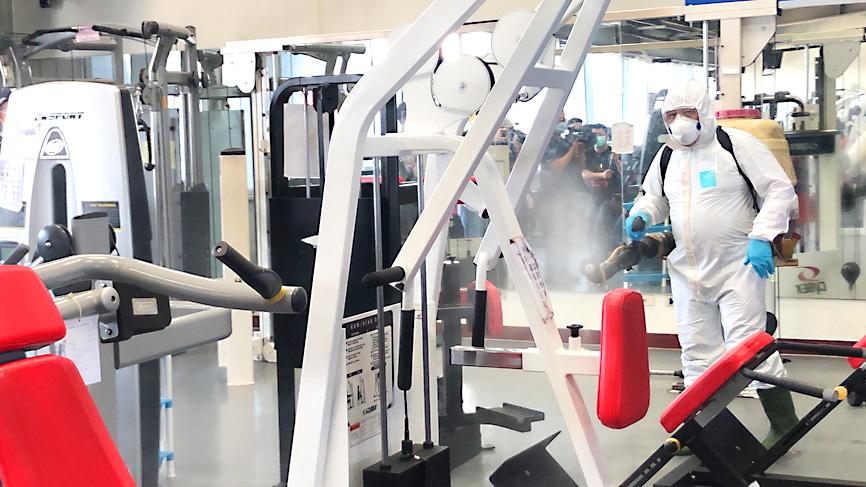
Photo: Lo Hsin-chen, Taipei Times
The vessel, part of a “Friendship Flotilla,” visited Palau from March 12 to 15 before returning to Kaohsiung’s Zuoying Naval Base on April 9. The crew disembarked on Wednesday.
A total of 744 officers, sailors and cadets were recalled on Saturday evening for testing and put under 14-day centralized quarantine after the first case was confirmed earlier that day.
The center yesterday sent more than 200,000 text messages to people who had been to any of the more than 30 places in 10 cities and counties where the infected sailors had been for more than 15 minutes from Wednesday to Saturday, asking them to perform self-health management for 14 days, Chen said.
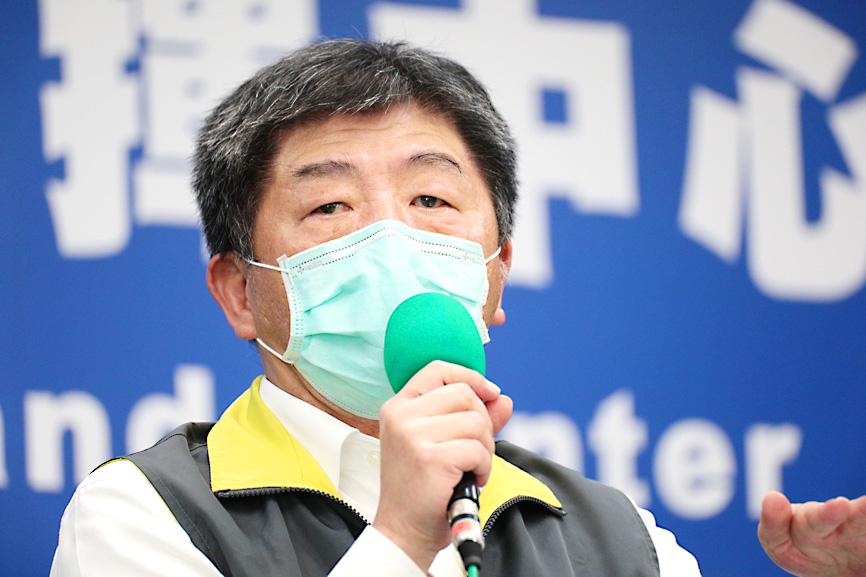
Photo: CNA
The CECC also published a link to an online map (bit.ly/2zdT9hH) showing the locations the infected sailors visited and the time they spent there.
Centers for Disease Control (CDC) Deputy Director-General Chuang Jen-hsiang (莊人祥) said the confirmed cases are 22 men and two women, with a median age of 27.
Seventeen of them are officers, six are Political Warfare Cadres Academy students and one is a Republic of China Naval Academy student, Chuang said.
The first case developed symptoms on April 1, eight cases developed symptoms from April 11 to Tuesday last week, seven from Wednesday to Saturday, and one developed symptoms on Sunday, he said, adding that seven cases are asymptomatic.
Of the 17 symptomatic cases, nine developed coughing, nine experienced an abnormal sense of smell, seven had abnormal senses of smell and taste, three had a headache, another three developed a fever, two had diarrhea and one experienced fatigue.
Six of them sought treatment on their own from Wednesday to Friday, but were mostly diagnosed with allergic rhinitis, loss of smell, throat pain or respiratory infection, he said.
“Considering the timing of the onset of symptoms, we think the cluster of cases has already involved a second wave of infections,” Chuang said. “We also expect there might be more cases in the incubation period who will begin suffering symptoms in the following days.”
The center is investigating the source of infection, he added.
Chang Shan-chwen (張上淳), convener of the CECC advisory specialist panel, said after retrieving medical records from medical officers on board the Panshih, they found five people had sought treatment for fever between March 21 and March 26, so those five were tested for COVID-19 antibodies on Sunday.
“While the five tested negative for COVID-19, three among them tested positive for COVID-19 antibodies, suggesting that they were infected earlier,” Chang said.
It is difficult to determine when they produced antibodies, but if the date they sought treatment marks the onset of symptoms, it was likely they infected others on board, he said.
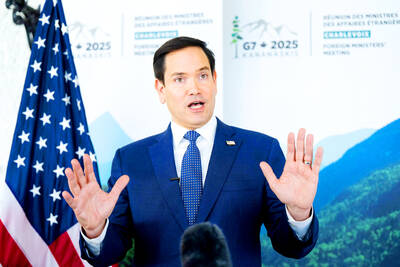
‘CROWN JEWEL’: Washington ‘can delay and deter’ Chinese President Xi Jinping’s plans for Taiwan, but it is ‘a very delicate situation there,’ the secretary of state said US President Donald Trump is opposed to any change to Taiwan’s “status quo” by force or extortion and would maintain that policy, US Secretary of State Marco Rubio told the Hugh Hewitt Show host on Wednesday. The US’ policy is to maintain Taiwan’s “status quo” and to oppose any changes in the situation by force or extortion, Rubio said. Hewitt asked Rubio about the significance of Trump earlier this month speaking with Taiwan Semiconductor Manufacturing Co (台積電) chairman C.C. Wei (魏哲家) at the White House, a meeting that Hewitt described as a “big deal.” Asked whether the meeting was an indication of the
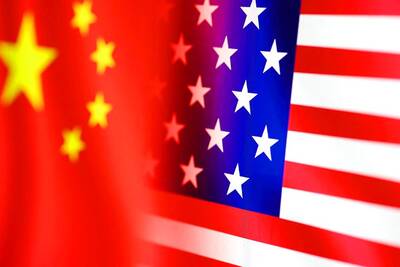
‘RELATIVELY STRONG LANGUAGE’: An expert said the state department has not softened its language on China and was ‘probably a little more Taiwan supportive’ China’s latest drills near Taiwan on Monday were “brazen and irresponsible threats,” a US Department of State spokesperson said on Tuesday, while reiterating Washington’s decades-long support of Taipei. “China cannot credibly claim to be a ‘force for stability in a turbulent world’ while issuing brazen and irresponsible threats toward Taiwan,” the unnamed spokesperson said in an e-mailed response to media queries. Washington’s enduring commitment to Taiwan will continue as it has for 45 years and the US “will continue to support Taiwan in the face of China’s military, economic, informational and diplomatic pressure campaign,” the e-mail said. “Alongside our international partners, we firmly
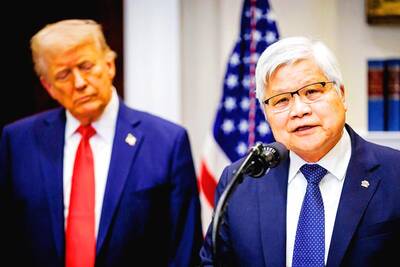
KAOHSIUNG CEREMONY: The contract chipmaker is planning to build 5 fabs in the southern city to gradually expand its 2-nanometer chip capacity Taiwan Semiconductor Manufacturing Co (TSMC, 台積電), the world’s biggest contract chipmaker, yesterday confirmed that it plans to hold a ceremony on March 31 to unveil a capacity expansion plan for its most advanced 2-nanometer chips in Kaohsiung, demonstrating its commitment to further investment at home. The ceremony is to be hosted by TSMC cochief operating officer Y.P. Chyn (秦永沛). It did not disclose whether Premier Cho Jung-tai (卓榮泰) and high-ranking government officials would attend the ceremony. More details are to be released next week, it said. The chipmaker’s latest move came after its announcement earlier this month of an additional US$100 billion

Authorities yesterday elaborated on the rules governing Employment Gold Cards after a US cardholder was barred from entering Taiwan for six years after working without a permit during a 2023 visit. American YouTuber LeLe Farley was barred after already being approved for an Employment Gold Card, he said in a video published on his channel on Saturday. Farley, who has more than 420,000 subscribers on his YouTube channel, was approved for his Gold Card last month, but was told at a check-in counter at the Los Angeles International Airport that he could not enter Taiwan. That was because he previously participated in two